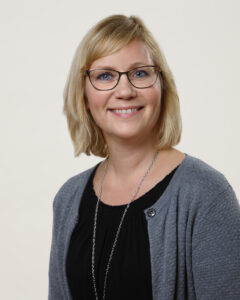15.1.2024
Continuous learning in the cross-breeze

Skills are the foundation of a fair and sustainable future. The continuous development of knowledge and skills promotes equality and the opportunities people have for engagement, and it also strengthens a more pluralistic democracy. So says Sitra’s memorandum on lifelong learning from 2021. And it’s easy to agree!
The memorandum, which presents how continuous learning is organised in the Nordic countries, highlights the importance of systemic, phenomenon-based and dialogical management of continuous learning in society. Everyone’s right to continuous learning is an important goal that requires long-term work. In Finland, continuous learning is managed through the government programme and several different ministries, which challenges long-term work. The need for a joint national strategy for continuous learning was discussed for a long time, and in 2022 the goal was finally achieved.
It is a really good strategy, developed in a dialogical process, and it focuses on making continuous learning more accessible, developing the digital service environment and better integrating continuous learning and research. However, from day one there was no clear funding and resourcing plan and instead we have been waiting to see how the new government and the government programme will address this strategy.
One year after the launch of the national strategy, it is becoming clear that the rules of the game for continuous learning are being rewritten. Universities will receive a smaller share of funding for continuous learning through the funding model. On the other hand, the maximum amount for courses and credits in Open Universities will be tripled (to 45 euros per study point) to create greater flexibility. In addition, it’s expected that higher education institutions will do more business on micro-credentials and other ways of creating skills development for society.
Minister Sari Multala justifies the increase in Open University fees in an interview in the newspaper Uutissuomalainen (24 November 2023). She says that this strengthens the role of the Open Universities (ÖPU) in continuing education, while at the same time it is a cost-saving measure. The need to increase first-time students at higher education institutions will probably lead to a change in the funding model so that some of the Continuous Learning and Open University study points are weighted in the first-time quota instead. At the same time, it is also important to create more opportunities to enter universities via ÖPU routes. I don’t know, but I at least have a difficult time trying to mesh all these justifications together.
In any case, it is the government that sets the rules of the game, and regardless of them, it is important that Åbo Akademi University has a clear and distinct mission in terms of continuous learning. It is important to keep up and be prepared to develop the organisation. The Council for Lifelong Learning, with representatives from working life, CLL, the faculties and students, recently had a meeting where we discussed the direction of the organisation and how we should understand and act in relation to the economic conditions.
However, the discussion is not straightforward and there are many different factors that need to be taken into account. Educational activities are not something that can be changed quickly. It is a question of organisational culture and structures that take time to shape and re-shape. There are many different stakeholders and many different beneficiaries (customers) of this activity. There are winds blowing from every conceivable direction and creating cross-breezes. But having said that, I still think we have a good situation at ÅAU, we know our activities and operating conditions and the timing of this discussion is optimal given the ongoing strategy review process at ÅAU. Another good situation is that CLL is currently also actively involved in influencing how the continuous learning strategy is shaped locally in Southwest Finland.
Continuous learning is not only an issue for CLL but for the whole of ÅAU. Therefore, we discuss the development of CL integrated with the educational strategy measures as a whole. The proposal for educational strategy measures, which was recently circulated for consultation, mentions, among other things, that we strengthen our working life contacts, the programmes cooperate to a greater extent with various societal actors and we see how we can strengthen research-based continuous learning, in line with the national CL strategy. In 2024, it will be clear which measures will be prioritised.
Despite the cross-breeze, there is much we can influence ourselves. By keeping our eyes above the political fray, we can collectively take responsibility and work towards clear and relevant education and training activities that support equal access to skills development and continuous learning.
Continuous learning is defined slightly differently depending on who is doing it: working life, financiers, decision-makers, higher education institutions or individuals. For ÅAU, it is important that we include competence development, education and training perspectives in the understanding of continuous and lifelong learning. Below are some key actors’ definitions.
SECLE: Continuous learning refers to the development and refinement of knowledge that continues throughout life. Continuous learning is partly the purposeful and diverse organisation and enhancement of skills and knowledge, partly development that takes place in everyday life. (SECLE = The Service Centre for Continuous Learning and Employment)
Ministry of Education and Culture: Continuous learning responds to the need to develop and renew competence at different stages of people’s lives and careers.
The Ministry of Economic Affairs and Employment: Continuous learning refers to learning that spans across people’s whole lives and covers different areas of life. The reform of continuous learning seeks to respond to the skills needs arising from changes in the world of work, with a focus on improving the skills of working-age people.
